The Locked up Living Podcast: Surviving and thriving in prisons and other challenging environments
Can institutional culture challenge your mental health? What if your job makes you feel shame, sadness, grief, disgust and fear? What if you are expected not to feel? Or you are expected to be relentlessly competitive? What it’s like to live or work in a prison? Does working with people who commit murder, child abuse and rape affect people who work in prisons and the wider criminal justice system?
How do people survive and thrive when facing significant challenges to our emotional health over a lengthy period? How do we protect ourselves and stay compassionate, loving and trusting? Importantly, how do we find and preserve hope?
Fyodor Dostoevsky wrote that “The degree of civilisation in a society can be judged by entering its prisons”. In this weekly podcast ,your hosts, David Jones (Forensic psychotherapist) and Dr Naomi Murphy (Consultant Clinical & Forensic Psychologist) hope that exploring less visible aspects of prisons will help listeners see that prisons are a window into society and let us see people not only at their worst but also at their best. We feature a rich range of guests sharing snap shots of life in prisons and take a look at hospitals, schools, sport and the police in order to learn from other institutions. We learn about challenges to human integrity and hear important lessons and heart-warming stories about survival and growth when facing adversity in harsh places. We hope that sharing our conversations can help you make changes to your own relationship with institutions that might challenge your emotional health and well-being.
Follow and connect with us and give us feedback. Let us know what you think works, and also what doesn’t. We want you to look forward to the podcast each week. We’ll also be extremely grateful for any reviews that you give us. A simple star or two or a thumbs up will do.
Email: lockedupliving@gmail.com or connect with us on:
Substack: https://lockedupliving.substack.com
Twitter: https://twitter.com/LockedUpLiving
Linkedin: https://www.linkedin.com/in/naomimurphypsychologist/
https://www.linkedin.com/in/david-jones-41910b12/
Insta: https://www.instagram.com/lockedupliving/
Can institutional culture challenge your mental health? What if your job makes you feel shame, sadness, grief, disgust and fear? What if you are expected not to feel? Or you are expected to be relentlessly competitive? What it’s like to live or work in a prison? Does working with people who commit murder, child abuse and rape affect people who work in prisons and the wider criminal justice system?
How do people survive and thrive when facing significant challenges to our emotional health over a lengthy period? How do we protect ourselves and stay compassionate, loving and trusting? Importantly, how do we find and preserve hope?
Fyodor Dostoevsky wrote that “The degree of civilisation in a society can be judged by entering its prisons”. In this weekly podcast ,your hosts, David Jones (Forensic psychotherapist) and Dr Naomi Murphy (Consultant Clinical & Forensic Psychologist) hope that exploring less visible aspects of prisons will help listeners see that prisons are a window into society and let us see people not only at their worst but also at their best. We feature a rich range of guests sharing snap shots of life in prisons and take a look at hospitals, schools, sport and the police in order to learn from other institutions. We learn about challenges to human integrity and hear important lessons and heart-warming stories about survival and growth when facing adversity in harsh places. We hope that sharing our conversations can help you make changes to your own relationship with institutions that might challenge your emotional health and well-being.
Follow and connect with us and give us feedback. Let us know what you think works, and also what doesn’t. We want you to look forward to the podcast each week. We’ll also be extremely grateful for any reviews that you give us. A simple star or two or a thumbs up will do.
Email: lockedupliving@gmail.com or connect with us on:
Substack: https://lockedupliving.substack.com
Twitter: https://twitter.com/LockedUpLiving
Linkedin: https://www.linkedin.com/in/naomimurphypsychologist/
https://www.linkedin.com/in/david-jones-41910b12/
Insta: https://www.instagram.com/lockedupliving/
Episodes

Wednesday Feb 28, 2024
Gina Miller; True and Fair party. Election special. Video version
Wednesday Feb 28, 2024
Wednesday Feb 28, 2024
In this captivating conversation, businesswoman and activist Gina Miller takes center stage as she discusses her journey and the important work she is doing. Known for her groundbreaking case against the British government following the Brexit referendum, Gina has been a vocal advocate for transparency and fairness in various industries. She founded the True and Fair Campaign in 2012, aiming to combat financial misconduct in investment and pension sectors. Recently, she has started a political party with the same name, seeking to address the concerns of the public and bring about positive change. Throughout the conversation, Gina's passion for social justice and her determination to challenge corruption shine through. Her experiences, including her time at boarding school and her upbringing in a Commonwealth country, have shaped her perspective and fueled her drive to make a difference. Join us as we delve into Gina's motivations, her thoughts on the current state of society, and her vision for a better future.
Six key points
1. The conversation revolves around the need for change in various sectors, particularly the NHS, but there is a concern that the government's idea of change is simply budget cuts.
2. The erosion of community and the dependence on financial institutions is seen as a counter-revolution against the welfare state and capitalism's need for people to rely on them.
3. There is a call for a more holistic approach to policymaking, where different areas such as the NHS, education, and the economy work together.
4. The importance of hard work and active involvement in making things right is emphasized, rather than relying on others to fix problems.
5. The leaders of the country are seen as responsible for the emotional and soulful state of the nation, and their behavior sets a trend that affects society.
6. The conversation touches on the idea of a wellness economy, focusing on health, happiness, and community cohesion as essential components for a sustainable future.
https://www.trueandfairparty.uk/
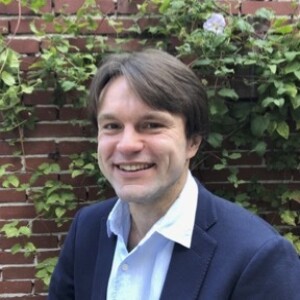
Wednesday Feb 21, 2024
Wednesday Feb 21, 2024
Michiel is a psychotherapist, psychologist and author who has written widely about Schema therapy. In this wide ranging conversation we discuss the importance of authenticity and emotion in therapeutic work. Here are five key points;
1. Peer supervision in therapy can sometimes focus too much on providing advice and techniques, rather than creating a space for therapists to share their vulnerabilities and connect authentically.
2. Many training programs in therapy emphasize techniques and attitudes, rather than teaching therapists how to connect with their own emotions and share them with clients. 3. The use of schemas and modes in therapy can become overly complex, with therapists feeling the need to label every aspect of a client's internal world. This can detract from the understanding of the complexity and individuality of each person's experiences.
4. Group therapy elements should be given more attention in research and practice, as they provide a mini society where individuals can explore and learn from the differences and dynamics within the group.
5. Therapists need to prioritize self-care and listen to their own minds and bodies. This includes recognizing signs of detachment, cynicism, and loss of interest, and taking them seriously to prevent burnout.
Michiel van Vreeswijk, MSc is clinical psychologist and CEO of G-Kracht Mental Health Care Institute, The Netherlands. He is a certified supervisor and personal therapist in cognitive behavioral therapy (VGCt; Dutch CBT society), certified supervisor schematherapy individual and group schema therapy (ISST, Dutch society of ST) and specialist group therapy (Dutch society of group psychotherapie: NVGP). Michiel gives regularly schema therapy workshops/supervision/ personal therapy in the Netherlands and worldwide. He is (co-) author/ editor of several schema books/ chapters/ articles and is a researcher in schema group therapy.
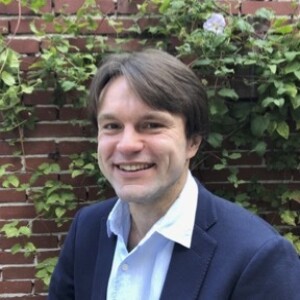
Wednesday Feb 21, 2024
Wednesday Feb 21, 2024
Michiel is a psychotherapist, psychologist and author who has written widely about Schema therapy. In this wide ranging conversation we discuss the importance of authenticity and emotion in therapeutic work. Here are five key points;
1. Peer supervision in therapy can sometimes focus too much on providing advice and techniques, rather than creating a space for therapists to share their vulnerabilities and connect authentically.
2. Many training programs in therapy emphasize techniques and attitudes, rather than teaching therapists how to connect with their own emotions and share them with clients. 3. The use of schemas and modes in therapy can become overly complex, with therapists feeling the need to label every aspect of a client's internal world. This can detract from the understanding of the complexity and individuality of each person's experiences.
4. Group therapy elements should be given more attention in research and practice, as they provide a mini society where individuals can explore and learn from the differences and dynamics within the group.
5. Therapists need to prioritize self-care and listen to their own minds and bodies. This includes recognizing signs of detachment, cynicism, and loss of interest, and taking them seriously to prevent burnout.
Michiel van Vreeswijk, MSc is clinical psychologist and CEO of G-Kracht Mental Health Care Institute, The Netherlands. He is a certified supervisor and personal therapist in cognitive behavioral therapy (VGCt; Dutch CBT society), certified supervisor schematherapy individual and group schema therapy (ISST, Dutch society of ST) and specialist group therapy (Dutch society of group psychotherapie: NVGP). Michiel gives regularly schema therapy workshops/supervision/ personal therapy in the Netherlands and worldwide. He is (co-) author/ editor of several schema books/ chapters/ articles and is a researcher in schema group therapy.

Wednesday Feb 14, 2024
David Breakspear; From Prison to Purpose: Creating Meaningful Lives After Incarceration
Wednesday Feb 14, 2024
Wednesday Feb 14, 2024
In this conversation, David Breakspear, a former prisoner and now a mentor and advocate for criminal justice reform, shares his insights and experiences with David and Naomi. David emphasizes the importance of listening and asking the right questions when working with individuals who have been through the criminal justice system. He believes that by shifting the focus from "what's wrong with you" to "what's happened to you," we can help people overcome their resentment and find a better path in life. David also discusses his involvement with organizations like Revolving Doors and Shannon Trust, where he uses his lived experience to support others. He highlights the power of language and the need for the system to use the right kind of language when addressing individuals who have been in prison. The conversation touches on the disruptive nature of custodial sentences and the challenges faced by individuals reintegrating into society. David shares his journey of turning his negative experiences into something purposeful and meaningful. He also talks about his involvement with Reconnect, a program that aims to support individuals transitioning from prison to the community. Throughout the conversation, David emphasizes the importance of speaking truth to power and advocating for change in the criminal justice system. He discusses the impact of neurodiversity and the need for support and understanding for individuals with diverse needs in prison. Overall, the conversation provides a powerful and thought-provoking perspective on the criminal justice system and the importance of empathy, understanding, and support in helping individuals overcome their past and build a better future.
Main Points
1. Living in probation hostels or approved premises can be challenging due to the mix of residents with different criminal backgrounds and the restrictions placed on individuals. It can feel like being stuck in a confined space where all daily activities take place.
2. The age of criminal responsibility in Europe is the lowest at 10 years old, and children are often criminalized too young. The focus should be on addressing the underlying needs of young people, particularly in the school-to-prison pipeline and school exclusions.
3. Mentoring and support play a crucial role in helping individuals overcome resentment and navigate through difficult situations. Listening and asking the right questions can help individuals see their potential and find alternative paths.
4. The criminal justice system should prioritize meeting the health needs of individuals, regardless of their offenses. Providing support and addressing unmet needs can reduce the likelihood of reoffending.
5. Personal experiences and the support of organizations like ReConnect have shown the importance of addressing health needs and providing opportunities for individuals to turn their lives around. Early intervention and support can prevent individuals from getting caught in the cycle of the criminal justice system.
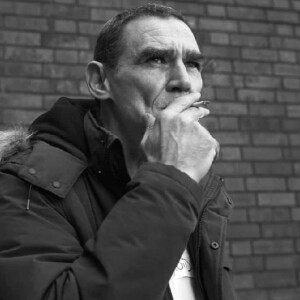
Wednesday Feb 14, 2024
Wednesday Feb 14, 2024
In this conversation, David Breakspear, a former prisoner and now a mentor and advocate for criminal justice reform, shares his insights and experiences with David and Naomi. David emphasizes the importance of listening and asking the right questions when working with individuals who have been through the criminal justice system. He believes that by shifting the focus from "what's wrong with you" to "what's happened to you," we can help people overcome their resentment and find a better path in life. David also discusses his involvement with organizations like Revolving Doors and Shannon Trust, where he uses his lived experience to support others. He highlights the power of language and the need for the system to use the right kind of language when addressing individuals who have been in prison. The conversation touches on the disruptive nature of custodial sentences and the challenges faced by individuals reintegrating into society. David shares his journey of turning his negative experiences into something purposeful and meaningful. He also talks about his involvement with Reconnect, a program that aims to support individuals transitioning from prison to the community. Throughout the conversation, David emphasizes the importance of speaking truth to power and advocating for change in the criminal justice system. He discusses the impact of neurodiversity and the need for support and understanding for individuals with diverse needs in prison. Overall, the conversation provides a powerful and thought-provoking perspective on the criminal justice system and the importance of empathy, understanding, and support in helping individuals overcome their past and build a better future.
Main Points
1. Living in probation hostels or approved premises can be challenging due to the mix of residents with different criminal backgrounds and the restrictions placed on individuals. It can feel like being stuck in a confined space where all daily activities take place.
2. The age of criminal responsibility in Europe is the lowest at 10 years old, and children are often criminalized too young. The focus should be on addressing the underlying needs of young people, particularly in the school-to-prison pipeline and school exclusions.
3. Mentoring and support play a crucial role in helping individuals overcome resentment and navigate through difficult situations. Listening and asking the right questions can help individuals see their potential and find alternative paths.
4. The criminal justice system should prioritize meeting the health needs of individuals, regardless of their offenses. Providing support and addressing unmet needs can reduce the likelihood of reoffending.
5. Personal experiences and the support of organizations like ReConnect have shown the importance of addressing health needs and providing opportunities for individuals to turn their lives around. Early intervention and support can prevent individuals from getting caught in the cycle of the criminal justice system.

Wednesday Feb 07, 2024
Greg Clarke; Exploring the Intersection of Psychology and Sports. Video version
Wednesday Feb 07, 2024
Wednesday Feb 07, 2024
In this episode we interview Dr. Greg Clarke, a clinical psychologist with a diverse background in various roles. Dr. Clarke has worked as a clinical lead for a chronic pain service, a consultant psychologist, and head of psychology within a low secure rehab service. He has also worked as a lead clinical performance psychologist at a Premier League football club. During the conversation, Dr. Clarke discusses his experiences working in the field of clinical psychology and sports psychology. He shares insights into the challenges and rewards of working in these areas, highlighting the importance of maintaining a balance between personal and professional life. Dr. Clarke also discusses the temporary nature of the sports industry and the impact it can have on individuals' mental health. He emphasizes the significance of acceptance and the ability to overcome psychological pain, drawing on his experiences working with patients in pain services. Dr. Clarke also touches on the role of cognitive-behavioral therapy (CBT), dialectical behavior therapy (DBT), acceptance and commitment therapy (ACT), and eye movement desensitization reprocessing (EMDR) in his practice. Overall, the conversation provides valuable insights into the field of clinical psychology and the intersection of psychology and sports. Dr. Clarke's experiences shed light on the challenges and rewards of working in these areas and the importance of maintaining a balanced approach to life and work.

Wednesday Feb 07, 2024
Greg Clarke; Exploring the Intersection of Psychology and Sports
Wednesday Feb 07, 2024
Wednesday Feb 07, 2024
In this episode of the Locked Up Living podcast,we interview Dr. Greg Clarke, a clinical psychologist with a diverse background in various roles. Dr. Clarke has worked as a clinical lead for a chronic pain service, a consultant psychologist, and head of psychology within a low secure rehab service. He has also worked as a lead clinical performance psychologist at a Premier League football club. During the conversation, Dr. Clarke discusses his experiences working in the field of clinical psychology and sports psychology. He shares insights into the challenges and rewards of working in these areas, highlighting the importance of maintaining a balance between personal and professional life. Dr. Clarke also discusses the temporary nature of the sports industry and the impact it can have on individuals' mental health. He emphasizes the significance of acceptance and the ability to overcome psychological pain, drawing on his experiences working with patients in pain services. Dr. Clarke also touches on the role of cognitive-behavioral therapy (CBT), dialectical behavior therapy (DBT), acceptance and commitment therapy (ACT), and eye movement desensitization reprocessing (EMDR) in his practice. Overall, the conversation provides valuable insights into the field of clinical psychology and the intersection of psychology and sports. Dr. Clarke's experiences shed light on the challenges and rewards of working in these areas and the importance of maintaining a balanced approach to life and work.
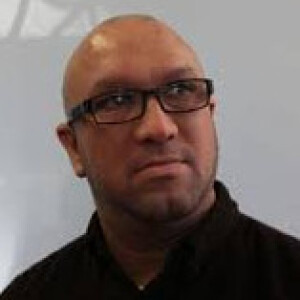
Wednesday Jan 24, 2024
Wednesday Jan 24, 2024
We were captivated by the depth and richness of Jason's research. His passion for the subject matter was evident, and it shone through in his detailed responses in this podcast.
Jason, discusses his research on the experiences of forensic psychologists working in prisons. He emphasizes the importance of humanizing the individuals in the prison system and understanding their vulnerability and humanness. He mentions the fragmentation of services in prisons and the need to return to more therapeutic practices that were lost in the 1990s.
Jason initially faced challenges in gaining access to conduct his research on risk assessment models in prisons. - He discusses the diffusing of responsibility and the opaque system of bureaucracy within the prison system.
Jason talks about the need for forensic psychologists to be aware of their power and the effects it has on individuals.
He mentions the existence of a whisper network among women working in prisons to protect themselves from sexism and misogyny. Jason highlights the hidden power dynamics within the prison system and the impact of decisions made by forensic psychologists.
He expresses his desire for changes in the prison system, including more awareness of power dynamics, better support for forensic psychologists, and the importance of conducting research that may challenge existing practices. Jason discusses the challenges of maintaining optimism and avoiding cynicism in his work, mentioning the importance of self-care and maintaining distance from the emotional aspects of the research. - He reflects on the benefits of having in-depth conversations with participants and understanding their perspectives, even if they may not align with his own.
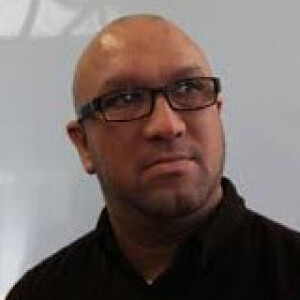
Wednesday Jan 24, 2024
Wednesday Jan 24, 2024
We were captivated by the depth and richness of Jason's research. His passion for the subject matter was evident, and it shone through in his detailed responses in this podcast.
Jason, discusses his research on the experiences of forensic psychologists working in prisons. He emphasizes the importance of humanizing the individuals in the prison system and understanding their vulnerability and humanness. He mentions the fragmentation of services in prisons and the need to return to more therapeutic practices that were lost in the 1990s.
Jason initially faced challenges in gaining access to conduct his research on risk assessment models in prisons. - He discusses the diffusing of responsibility and the opaque system of bureaucracy within the prison system.
Jason talks about the need for forensic psychologists to be aware of their power and the effects it has on individuals.
He mentions the existence of a whisper network among women working in prisons to protect themselves from sexism and misogyny. Jason highlights the hidden power dynamics within the prison system and the impact of decisions made by forensic psychologists.
He expresses his desire for changes in the prison system, including more awareness of power dynamics, better support for forensic psychologists, and the importance of conducting research that may challenge existing practices. Jason discusses the challenges of maintaining optimism and avoiding cynicism in his work, mentioning the importance of self-care and maintaining distance from the emotional aspects of the research. - He reflects on the benefits of having in-depth conversations with participants and understanding their perspectives, even if they may not align with his own.
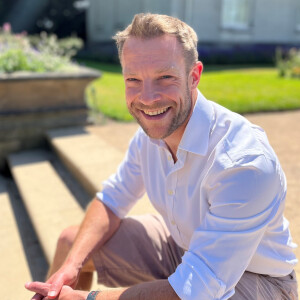
Wednesday Jan 17, 2024
Wednesday Jan 17, 2024
Nick O'Sullivan, is the Co-founder and MD of Mojave Training, a leadership and management training business. https://www.mojavetraining.co.uk/
Nick spent 13 years in the Marines, including four years in the special forces.
Specialising as an information systems officer, his military career alternated between technical support and operational roles. In 2015 he designed and delivered a large scale, multi-national training event for which he was awarded an MBE for his services to Defence. But his career was certainly not all high points, and he faced a number of challenging experiences to get there, from a couple of near-death experiences to toxic leadership.
Nick emphasizes the importance of moral courage in leadership and personal development. He believes in looking inwardly and being honest about strengths and weaknesses.
Nick discusses the importance of belonging and being part of a team in the military. He highlights the need for leaders to lead by example and practice what they preach. Nick mentions the power of small interactions and gestures in leadership. He encourages finding opportunities in every situation, even in difficult times.
Nick shares his experience of combat deployments in Afghanistan. He talks about the mindset and positive attitude required in challenging situations.
Nick now works with small and medium enterprises, providing leadership and management support.
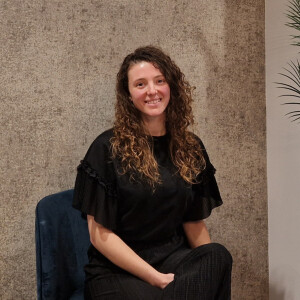
Wednesday Jan 10, 2024
183. Kaigan Corrie; Beyond the Uniform: Humanizing Prison Officers and Ex-Prisoners
Wednesday Jan 10, 2024
Wednesday Jan 10, 2024
In this podcast conversation, Naomi and David speak with Kaigan Carrie, the host of the Evolving Prisons podcast and a PhD researcher studying the relationship between prison officer culture and well-being. Kaigan explains that her podcast aims to share the stories of prison officers, governors, and ex-prisoners to shed light on the realities of life in prison and promote rehabilitation.
They discuss the importance of focusing on the nuances of the prison experience rather than glamorizing crime, as many true crime podcasts tend to do. Kaigan emphasizes the need for society to understand the work that prison officers do and the challenges they face. She believes that prison officers should have a voice and wants to be a platform for them to share their experiences.
Kaigan also highlights the differences in training between countries, specifically mentioning the lack of substance misuse training for prison officers in Scotland compared to Norway. She believes that proper training is crucial for addressing issues like drug use in prisons.
The conversation then shifts to Kaigan's passion for well-being and her desire to encourage people to create lives that truly fulfill them. She shares her core values, which include connection, health, freedom, and growth. Kaigan emphasizes the importance of addressing mental health and dealing with the things that are going on in one's head to find true happiness.
Lastly, Kaigan discusses her collaboration with Rob Hosking on a magazine called The Rise of Happiness, which focuses on well-being and provides expert tips and research on various aspects of health.
Overall, the conversation highlights the need for a more nuanced understanding of prison life, the importance of proper training for prison officers, and the significance of prioritizing well-being in society.
https://www.evolvingprisons.com/
https://riseofhappiness.com/about/

Wednesday Jan 03, 2024
182. Nahid de Belgeonne; Somatic movement and your nervous system
Wednesday Jan 03, 2024
Wednesday Jan 03, 2024
Nahid de Belgeonne, a somatic movement educator, author and Feldenkrais practitioner discusses the importance of movement and the connection between the body and mind. Nahid argues that our bodies are dynamic organisms that need to be engaged and not confined to a sedentary lifestyle. She mentions the development of talking therapies that incorporate physicality, such as sensory motor psychotherapy and somatic experiencing, to address the need for a holistic approach to mental health. Nahid suggests that having a good relationship with oneself is crucial for building healthy connections with others. She emphasizes the importance of understanding and regulating our own nervous systems in order to create a positive environment for ourselves and those around us. We discuss how our bodies can unintentionally shut others out and the need to practice being comfortable within a system of coexistence. Nahid then talks about her upcoming book, "Soothe," which combines scientific research and practical techniques to help readers understand and regulate their nervous systems. The book covers various aspects of the nervous system, including its context, influences, and ways to recover and reset in moments of emotional distress. The conversation shifts to the role of movement in emotional well-being, with Nahid explaining that even individuals with restricted movement or injuries can benefit from engaging in movement-focused activities. She mentions the use of imagination to simulate movement when physical limitations are present. The discussion concludes with a reflection on the importance of self-care and finding what works best for oneself. Naheed shares her personal journey of using movement to soothe her anxiety and emphasizes the need for a balanced approach to self-improvement and compassion towards oneself and the environment.
https://nahiddebelgeonne.substack.com/
https://www.amazon.co.uk/Soothe-book-nervous-system-longing/dp/180081710X/ref=sr_1_7?crid=3L4V4303AHM9U&keywords=soothe&qid=1695472552&sprefix=soothe%2Caps%2C86&sr=8-7
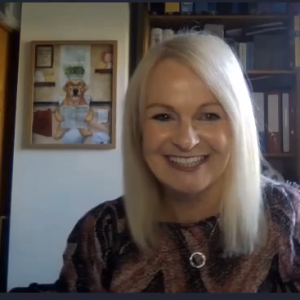
Wednesday Dec 27, 2023
181. Claire Bicknell; Mastering the Art of Networking
Wednesday Dec 27, 2023
Wednesday Dec 27, 2023
In this episode of the Locked Up Living podcast, hosts Naomi Murphy and David Jones are joined by Claire Bicknell, the founder of the Catena Network, a successful business network. The discussion revolves around the value and importance of networking in both personal and professional settings. Claire emphasizes the need for authentic connections and likability when networking. She suggests that networking should be viewed as making business friends rather than a sales-focused activity. She also highlights the role of social media, particularly platforms like LinkedIn, in expanding networking opportunities. Claire advises individuals to use social media in a way that reflects their authentic voice, making it easier for others to connect with them. The hosts inquire about the benefits of networking for clinicians and academics who may already be well-established in their careers. Claire explains that networking can still be fruitful for these individuals, as it allows them to connect with experts in other disciplines and explore potential collaborations or referrals. Claire also shares tips for attendees to make the most out of networking events. She suggests arriving with an open mind, being approachable and friendly, and looking for opportunities to help others connect. As a host, Claire ensures that attendees have enough food and drink, and she facilitates introductions between individuals who have expressed specific networking goals. Overall, the conversation highlights the importance of networking as a means of building relationships, expanding professional opportunities, and fostering collaboration. Claire's insights provide valuable guidance for individuals looking to enhance their networking skills and make meaningful connections in their respective fields.
https://www.catena-business-network.com/
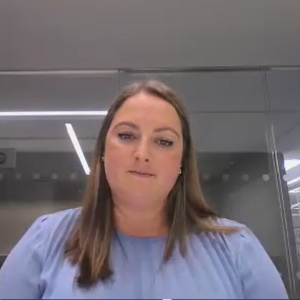
Wednesday Dec 27, 2023
180. Chloe Xhidas; Being a woman in the Construction Industry
Wednesday Dec 27, 2023
Wednesday Dec 27, 2023
In this episode of the Locked Up Living podcast, Naomi and David interview Chloe Xhidas, the Operations Manager at BW Design and Build Division, a fit out contractor specializing in office refurbishment. Chloe is also a committee member for the National Association for Women in Construction (NAWIC).
In the construction industry, women are significantly underrepresented, making up only 15% of the workforce. Only 1% of women are in skilled trades, and 16% hold managerial positions. This lack of representation creates challenges for women working in construction, particularly on construction sites where they may face discrimination and inappropriate behavior from male colleagues. To cope with these challenges, women often develop a steely persona and strive to be better than their male counterparts to justify their place in the industry. They may feel the need to be perfect, not make mistakes, and constantly prove themselves. This can take a toll on their mental health and well-being. To address these issues and reduce the suicide rate in the construction industry, several measures can be taken. Implementing buddy systems and mentorship programs can provide support and guidance to women in construction. Training on mental health awareness and creating a culture of open communication can also be beneficial. Companies can promote an inclusive and respectful work environment by addressing inappropriate behavior and promoting gender equality. While progress may be slower in larger organizations, smaller teams and companies may offer a more supportive and visible environment for women. Building confidence and not being afraid to ask questions or admit not knowing everything is crucial for young women starting out in construction. Overall, it is important to address the challenges faced by women in construction and create a more inclusive and supportive industry that values their contributions and prioritizes their well-being.
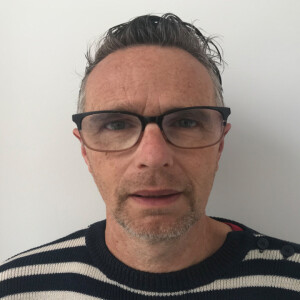
Wednesday Dec 20, 2023
179. Tony Gammidge, the power of art therapy through animation
Wednesday Dec 20, 2023
Wednesday Dec 20, 2023
Artist and art therapist Tony Gammidge discusses his work using animation as therapy, particularly in prison and refugee settings. He shares his personal journey of discovering art as a means of processing trauma and making sense of early experiences. Tony explains the power of storytelling and the unique qualities of animation in therapeutic work. He also discusses the challenges and rewards of working in marginalized communities and the potential for animation therapy to create positive change. While Tony acknowledges the therapeutic nature of his work, he hesitates to label it as traditional therapy and emphasizes the collaborative and empowering aspects of the process. In this conversation, Tony Gammidge discusses the niche of art therapy and animation, the challenges and joy in art therapy, the alchemical process of art therapy, self-care and grounding techniques, and processing emotions in art therapy.
Takeaways
Animation can be a powerful medium for therapy, allowing individuals to tell their stories and process trauma in a unique and creative way.
Working with marginalized groups, such as prisoners and refugees, requires sensitivity, flexibility, and an understanding of the specific challenges they face.
Animation therapy offers individuals the opportunity to explore their experiences and emotions through a collaborative and empowering process.
The use of animation in therapy can provide a sense of control and autonomy for individuals who may have limited agency in other aspects of their lives. Art therapy and animation are niche fields, but they can still be successful business models.
Engaging in art therapy and telling one's story can be a joyful experience, even if the story is traumatic.
Art therapy has the power to turn something awful into something beautiful through the alchemical process of creation.
Self-care in art therapy involves making one's own work, using materials, and telling one's own stories.
Processing emotions in art therapy can be challenging, but having a team to process with can be helpful.
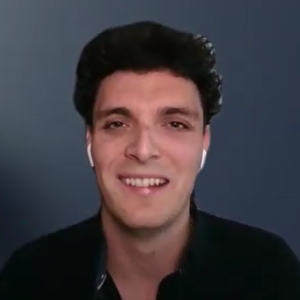
Wednesday Dec 13, 2023
178. Rob Hosking. The trauma of policework
Wednesday Dec 13, 2023
Wednesday Dec 13, 2023
In this conversation, Rob, a former police officer, discusses his experiences and the challenges he faced in the police force. He emphasizes the importance of creating a supportive and positive work environment to promote the well-being and happiness of staff. Rob believes that open communication and safe spaces for sharing personal stories are crucial in addressing the negative impact of the job. He also highlights the need for mandatory meetings to address mental health and create healthy habits within the organization. Rob shares his own struggles with mental health and the difficulty he faced in seeking help due to the stigma associated with it. He emphasizes the importance of surrounding oneself with positive influences and supportive individuals. Rob also talks about his current work as a motivational speaker, where he focuses on increasing happiness in both personal and professional lives. The conversation touches on the negative impact of gossip and the need for a more compassionate and understanding culture within the police force. Rob and the other participants discuss the challenges of compartmentalizing emotions and the importance of facing and healing from traumatic experiences. Overall, the conversation highlights the need for a shift in the culture of the police force to prioritize the well-being and mental health of its staff. It emphasizes the importance of open communication, support, and creating a positive work environment to promote happiness and resilience.
https://www.linkedin.com/in/robrthosking/?originalSubdomain=uk
https://riseofhappiness.com/about/

Wednesday Dec 06, 2023
177. Aneela Ahmed. Psychotherapist and former OT on having her voice heard as an OT
Wednesday Dec 06, 2023
Wednesday Dec 06, 2023
Now a psychotherapist Aneela worked for many years as a qualified occupational therapist and has 20 years’ experience working within the NHS supporting people with their mental health difficulties and well-being. Her specialisms are trauma work, working with people who have a diagnosis of BPD and culturally adapted therapy. She talks about her challenging years working as an OT in a mental health team and the expectations, sometimes explicit, that she would make the tea!!

Wednesday Nov 29, 2023
Wednesday Nov 29, 2023
If you have anything to do with health or the mental health field you must listen to this podcast and follow the links below. This is about the creeping reintroduction of the practice of causing physical damage to the brain as a 'remedy' for distress. Peter Sterling is an American physiologist and neuroscientist and Professor of Neuroscience at the University of Pennsylvania School of Medicine. In his long career he has made major and varied contributions to scientific knowledge and you will see more about this in the links below. He has also been a social activist throughout his life and we touch upon that before talking about his recent work ‘Causality in Mental Disturbance; a review of the Neuroscience’
'My life in ten minutes' https://www.youtube.com/watch?v=gjL2D29acro&t=11s
In the essays below, Peter provides an “overview of what we don’t know about the brain regarding mental disturbance and what we should not be doing to the brain physically and chemically as ‘therapy."
https://www.madinamerica.com/2023/07/causality-mental-disturbance/
https://www.madinamerica.com/2022/10/neuroscientist-evaluates-depression/
https://pubmed.ncbi.nlm.nih.gov/35107578/
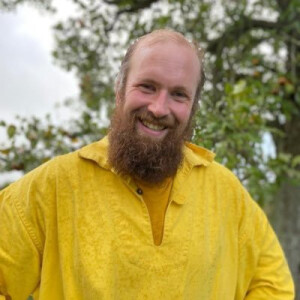
Wednesday Nov 22, 2023
175. David Shipley: Being posh in prison
Wednesday Nov 22, 2023
Wednesday Nov 22, 2023
I’m David Shipley. I’ve sold fork lift trucks, been a recruiter, worked in corporate finance and produced a film. I also committed a fraud in 2014, which I was jailed for in 2020. The prison system I saw horrified me. It is neglectful, cruel and seems almost designed to maximise reoffending. In August 2021 I was released, determined to make a difference. Now, I write, campaign and speak on prison reform. I work as a consultant prison inspector, and I’m always happy to talk, mentor, or write about those experiences. During my time inside I wrote a journal every day. This outlet helped my mental health, in particular during lockdown when I was confined to my cell for almost 24 hours a day. I then heard about the Koestler Prize and entered works in 2020 and 2021. I was delighted to be awarded prizes in both years and this spurred me to take my writing more seriously.
In January 2021, while still in prison, I began an MA in Creative Writing with the University of Hull, which has encouraged me to write fiction, with a bias towards historical and fantasy genres.
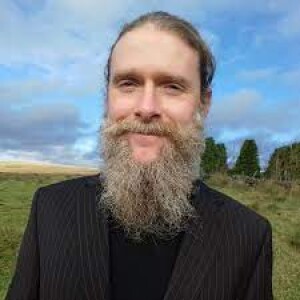
Wednesday Nov 15, 2023
174. Piers Cross; ’Do not grass’. Boarding school culture.
Wednesday Nov 15, 2023
Wednesday Nov 15, 2023
Piers Cross is a transformational coach specializing in working with men who feel stuck in their relationships. He helps men overcome and heal from trauma, boarding school issues, anxiety, depression, sleep problems, and live a happier and more fulfilled life.
He is also an artist, a poet and a musician.
Piers went to boarding school from ages 11-18. It was an exceptionally challenging time. He changed his name to Simon and then Ziggy Cross. He lost a friend to suicide, a teacher attempted to sexually abuse him and he tried to take his own life. On the surface he was a sucess. Underneath he was hurting.
he then trained in International Business at universities in France and London. he worked for several Fortune 500 companies in Paris and London.
In 1997, while in London, he started on an internal journey and started to study meditation and different self-healing paradigms.
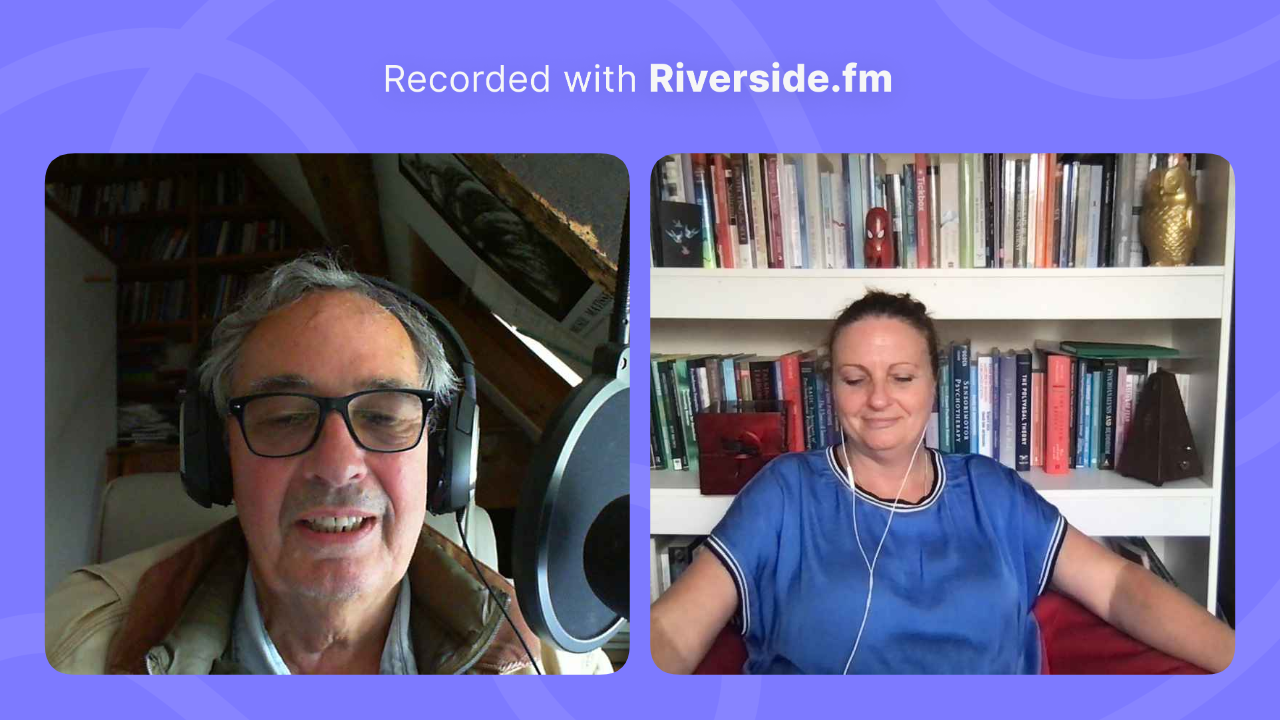
Why 'Locked up Living?'
David is a psychotherapist who has worked leading therapeutic communities in English prisons and in Millfields, an NHS forensic setting in East London. Naomi is a Consultant Clinical and Forensic psychologist who was, for many years, clinical lead at The Fens, a treatment programme for serious offenders at HMP Whitemoor. We had both experienced painful and destructive forces in our work and so we set out to discover what things make a positive difference for staff and service users and what is it that makes things go wrong. Of course we found out that there is no easy answer but there are many fascinating and valuable experiences to be heard.






